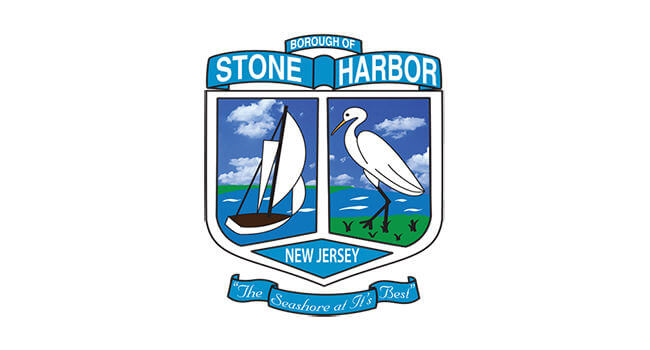STONE HARBOR – The Borough Council is moving ahead with a study of the pros and cons of establishing a stormwater utility, having allocated up to $375,000 for that purpose in its budget.
The council’s decision Oct. 1 to advertise for consultants for the technical and engineering study came on a split vote, 4-2, with council members Tim Carney and Robin Casper dissenting.
The borough has had an interest in a stormwater utility since 2022, when it unsuccessfully applied for a state grant to conduct a feasibility study. It has been an on-again, off-again issue, with the borough allocating money for the study this April, only to have Utility Committee Chair Casper announce in July that her committee supported moving the study to 2025.
Carney, a member of the Utility Committee, argued that entertaining the idea of a stormwater utility was premature in Stone Harbor. He said the concept was too new in the state, with no visible track record that could guide the use of one in the borough.
He said he understood its attractiveness as a potential way of removing expenses from the general fund budget in the borough, but said the borough did not yet have a strong plan for flood mitigation and stormwater management projects that such a utility could help fund.
Carney said he felt waiting was a more prudent option now, which, he added, would allow the borough to redirect some of the funds to things like the replacement of the 82nd Street playground.
New Jersey first approved establishment of municipal stormwater utilities in 2019, when the Clean Stormwater and Flood Reduction Act was signed into law. At the time, state Republicans came out strongly in opposition to such utilities, calling their establishment a way to institute a “rain tax.”
The state has been slow to adopt the concept, with only one such utility operational five years after they were approved for use. That utility is in New Brunswick, a city with a population of 55,000 that is home to the main campus of Rutgers University.
New Brunswick is a very different environment from Stone Harbor, which Carney noted as he explained why he voted no on moving ahead with the feasibility study.
Stormwater utilities are not new. There are almost 2,000 of them in operation across the country, with a heavy concentration of them on the West Coast. The University of North Carolina School of Government tracks the geography of stormwater utilities, noting on its website that such utilities “cluster around urban hubs in the continental United States.”
The attractiveness of the utility lies in its ability to establish a separate revenue stream based on factors like levels of impervious surfaces and amount of stormwater runoff rather than assessed value of property. It is considered a more equitable way of having those who contribute the most to stormwater runoff pay more. The utilities can also take on new debt separate from the general obligation debt of the municipality.
Its special attraction to Stone Harbor lies in its ability to remove expenses related to stormwater management and flood mitigation from the general fund and thereby returning some needed flexibility to the borough’s operating budget.
Critics argue that the added revenue stream created by the utility, however equitable in terms of stormwater runoff, is just another way of enacting a tax that does not have to grapple with the state caps meant to protect property owners from significant hikes in their levy.
Many advocates of such utilities say that they build public support for stormwater management issues while not forcing municipalities to choose between backing stormwater policies or proceeding with other popular projects during the creation of annual budgets. The effort to proceed with a feasibility study has the support of the Stone Harbor Property Owners Association.
In trying to deal with its budget issues, the borough already has a consulting team from the state’s Local Assistance Bureau studying ways that potential shared service arrangements could improve budget efficiency and help close a budget gap with the state-mandated appropriations cap.
Contact the reporter, Vince Conti, at vconti@cmcherald.com.








